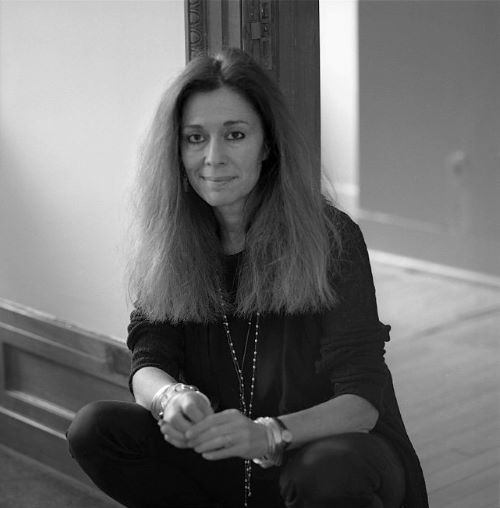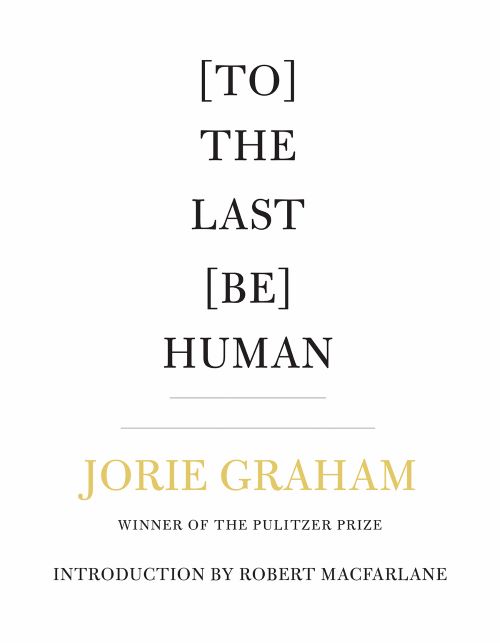Standing next to your body you have just gone.How much of you has gone has it all gone all at once.It has been just a minute now—I don’t want the time to go in this direction—it does.Now it has been two. Elsewhere. Elsewhere someone gets on a train—we’re almost there, a man says to a child,prepare for landing, the fields are rushing towards us,we are setting out with the picnic, the woods seem far but we have all day…Standing next to you, holding the hand which stiffens, am Ioutside of it more than before, are you not inside?The aluminum shines on your bedrail where the sun hits. It touches it.The sun and the bedrail—do they touch each other more than you and I now.Now. Is that a place now. Do you have a now.The day stands outside all around as if it were a creature. It is natural. Am I to think you nownatural? Earlier, is it an hour ago, you sat up briefly lookedout. Said nothing but I looked at your eyes and saw them see. You sawthe huckleberry, the plume of rose, the silver morning grow as if skinning night,that animal, till day came out raw and bleeding.Daybreak mended it for now. I saw you see the jay dropinto the clearing light, light arrive, direction assert itself for you—what for—but yesthat is East, with its slow grace. The jet went by way overhead.Shade one more time under the tree you love. Shadow then shade.Its body like a speech the tree was finally allowed to make, coming free of night.A statement. Which would evolve as it grew toknow—[you passed in here][you left][“you”—what did your you do?]—the bush,thebirds, hills; the hundreds of branches like snakes, top and bottommaking their event—the unbleaching from dawn to the rich interweaving knowledges ofthe collapse of knowledgewhich is day.Saw you sit up and look out. Just like that. Information is our bread and butteris what you loved to say. We each have a thing we lovedto say, I think. How many minutes have passed now. Have we caught up yet with where we justwere? There are so many copies of this minute.Not endless but there sure are a lotfrom when I started, going through my motions, part ofhistory—or, no, cup in hand, end at hand, trying to hide from thefinal ampersand. Where are you waiting, where out there, the wrong part of me now wants toask. And turns around and says, cue consequence, cueoccasion. There on the bed just now—(look, all of a sudden now I cannot write “your”bed)—I watch your afterlife begin toburn. Helpful. Making a space we had not usedbefore, could not. Undimmed, unconsumed. In it this daylight burns.
The Post Human
Feature Date
- November 24, 2022
Series
Selected By
Share This Poem
Print This Poem
“The Post Human” from [TO] THE LAST [BE] HUMAN: by Jorie Graham.
Published by Copper Canyon Press on September 6, 2022.
Copyright © 2022 by Jorie Graham.
All rights reserved.
Reproduced by Poetry Daily with permission.

Jeannette Montgomery Barron
Jorie Graham was born in New York City in 1950. She was raised in Rome, Italy and educated in French schools. She studied philosophy at the Sorbonne in Paris before attending New York University as an undergraduate, where she studied filmmaking. She received an MFA in poetry from the University of Iowa. Graham is the author of 14 collections of poetry, most recently Runaway (Ecco 2020), Fast (Ecco 2017), PLACE (Ecco 2012), Sea Change (Ecco, 2008) and The Dream of the Unified Field: Selected Poems 1974-1994, which won the 1996 Pulitzer Prize for Poetry. Graham has also edited two anthologies, Earth Took of Earth: 100 Great Poems of the English Language (1996) and The Best American Poetry 1990. Her work has been widely translated and is the recipient of multiple awards, including a John D. and Catherine T. MacArthur Fellowship, The Forward Prize (UK), The International Nonino Prize, the Los Angeles Times Book Award, and The Wallace Stevens Award. She has taught at the University of Iowa Writers’ Workshop and is currently the Boylston Professor of Rhetoric and Oratory at Harvard University. She served as a Chancellor of The Academy of American Poets from 1997 to 2003.
About her work, James Longenbach wrote in the New York Times: “For 30 years Jorie Graham has engaged the whole human contraption—intellectual, global, domestic, apocalyptic—rather than the narrow emotional slice of it most often reserved for poems. She thinks of the poet not as a recorder but as a constructor of experience. Like Rilke or Yeats, she imagines the hermetic poet as a public figure, someone who addresses the most urgent philosophical and political issues of the time simply by writing poems.”

Port Townsend, Washington
“Collecting Graham’s four stellar eco-poetic volumes, this searing and sensitive portrait of environmental contingency is as formally ambitious as it is captivating and wise. As Robert Macfarlane aptly writes in his beautiful introduction, the task of these poems is one ‘of record as well as of warning: to preserve what it felt like to be a human in these accelerated years when “the future / takes shape / too quickly.”’. . . To hold these volumes together is to have proof of Graham’s unmatched powers and to reckon with the resilience the present age demands.”
—Publishers Weekly, starred review
“Why think, why write, why break the silence? I have wondered sometimes if global warming makes our own deaths feel more real, as though threats to civilization were an overdeath, as though we had to die twice. But if ‘the synthetic materials last forever,’ as Graham writes in ‘Deep Water Trawling’ (our plastics are destined to outlive our species), there is also a sense in which our work lasts forever. ‘What the lips just inconceivably apart can make,’ she wrote in ‘The End of Beauty,’ ‘cannot then, ever again, be uncreated.’”
—The New York Times
“Four of Graham’s seminal works are collected and serve as a lyric testament to the poet’s writing on climate change and loss, while also celebrating the beauty and gifts of the world.”
—Publishers Weekly Fall Announcements Top Ten
“Jorie Graham faces the future anguished but unblinking in this magnificent collection of her four most recent books. . . . Their importance goes beyond the literary. . . . She is weathervane, sentinel, about-to-be lost soul. What makes her work required reading is her readiness to go where angels fear to write, to do the terrifying work of visualizing the future. . . . At 72, Graham is writing for her life, and ours.”
—The Guardian
Poetry Daily Depends on You
With your support, we make reading the best contemporary poetry a treasured daily experience. Consider a contribution today.



